 Petzlover
Petzlover Griffon Fauve de Bretagne is originated from France but Sarplaninac is originated from Macedonia. Griffon Fauve de Bretagne may grow 6 cm / 2 inches shorter than Sarplaninac. Griffon Fauve de Bretagne may weigh 24 kg / 52 pounds lesser than Sarplaninac. Both Griffon Fauve de Bretagne and Sarplaninac has almost same life span. Both Griffon Fauve de Bretagne and Sarplaninac has almost same litter size. Both Griffon Fauve de Bretagne and Sarplaninac requires Moderate Maintenance.
Griffon Fauve de Bretagne is originated from France but Sarplaninac is originated from Macedonia. Griffon Fauve de Bretagne may grow 6 cm / 2 inches shorter than Sarplaninac. Griffon Fauve de Bretagne may weigh 24 kg / 52 pounds lesser than Sarplaninac. Both Griffon Fauve de Bretagne and Sarplaninac has almost same life span. Both Griffon Fauve de Bretagne and Sarplaninac has almost same litter size. Both Griffon Fauve de Bretagne and Sarplaninac requires Moderate Maintenance.
 The Griffon Fauve de Bretagne is one of the oldest scenthounds in France and has always been part of a pack when hunting wolves and wild boar.
The Griffon Fauve de Bretagne is one of the oldest scenthounds in France and has always been part of a pack when hunting wolves and wild boar.
Once wolves started dying out in the 19th century and the dogs were no longer needed, they nearly became extinct. Luckily in 1949, Marcel Pambrun founded the Club de Fauve de Bretagne to bring the breed back from extinction.
Hailing from France, the dog is still used as a hunting dog in the country but is considered rare outside of Europe.
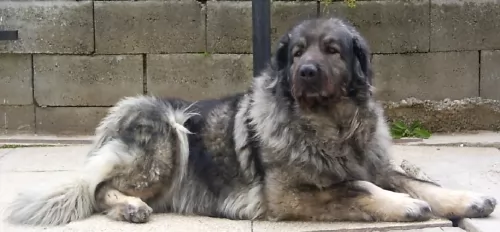 Hailing from Macedonia, the beautiful Sarplaninac dog was developed as a guardian of livestock and is large enough to fight off large predators like bears and wolves.
Hailing from Macedonia, the beautiful Sarplaninac dog was developed as a guardian of livestock and is large enough to fight off large predators like bears and wolves.
Nobody is too sure of the breeds exact origins, though it is thought that its ancestors came to the Balkan Peninsula with people migrating from ancient Asia.
This huge dog is one of the oldest native breeds from ancient Molosser breeds. The dog was recognized in 1939, and in 1954 it became known as the Yugoslav Shepherd Dog. Later the name changed and the dog was recognized by the United Kennel Club in 1995.
 Griffon Fauve de Bretagne are medium-sized muscular dogs standing at between 48 to 56cm and weighing in the region of 17 to 21 kg.
Griffon Fauve de Bretagne are medium-sized muscular dogs standing at between 48 to 56cm and weighing in the region of 17 to 21 kg.
The fur of this dog is a tawny, golden, orange shade and is shaggy and coarse, being longer around the face. Known also as the Fawn Brittany Griffon, this scenthound has floppy ears and a long tail carried somewhat up and in a slight curve.
The GFB as he is also sometimes known by, is an affectionate and loyal dog that loves spending time with his human family.
He is a social, friendly dog, and when he is socialized and trained, he becomes even more amicable. He has been bred as a working dog and while he loves to spend relaxing hours indoors, he is essentially a dog that loves to be out and about chasing after prey.
He is alert and intelligent and therefore makes a good watchdog. Your Griffon is energetic and active and will require lots of exercise. He will love coming on walks with you, but this won't be enough and he will require ball- and rope games as well as the chance to join you on your jogging or cycling outings.
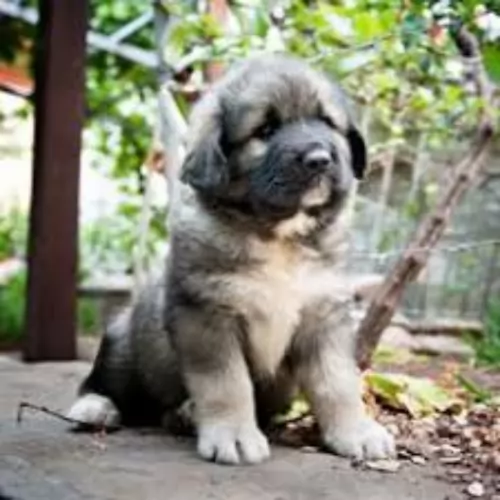 The Sarplaninac is a large, strong, fluffy dog standing at between 54 and 62cm in height and weighing between 30 and 45kg.
The Sarplaninac is a large, strong, fluffy dog standing at between 54 and 62cm in height and weighing between 30 and 45kg.
The coat of the dog is dense, coarse and of medium length. Colors are different shades of grey, white, tan and black. The head is large, the ears are fairly short but are floppy and covered with short hair. The dog is deep chested and the tail is long, often held high and covered with thick, feathery hair.
Protective, reliable, reserved, stubborn and gentle, this intelligent dog is fairly serious, and while he makes a devoted family pet, he is cool and wary of strangers.
Excellent training and socialization makes him well mannered, balanced and obedient around different people. He will tolerate children but won’t take easily to other pets in the house, capable of becoming aggressive with them.
 You won't find a better canine friend than the Griffon Fauve de Bretagne, once known as the Grand Fauve de Bretagne.
You won't find a better canine friend than the Griffon Fauve de Bretagne, once known as the Grand Fauve de Bretagne.
They have always loved their role as working- and hunting dog but when they're in the company of their human owners, they are loyal and loving, wanting to please.
This good nature of theirs sees them getting on well with other pets in the home as well as with children.Your golden Griffon Fauve De Bretagne is such a friendly, sociable dog and this is what makes him such a popular and sought after family pet.
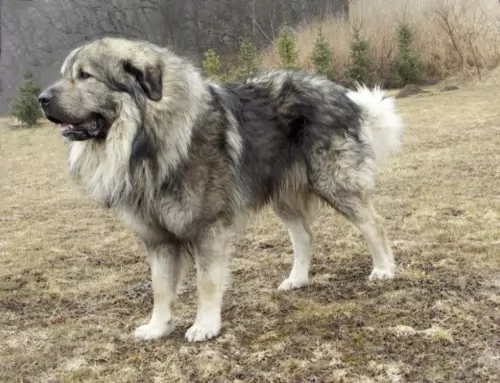 These dogs are protective, but they’re not vicious. When properly raised they are wonderful family pets.
These dogs are protective, but they’re not vicious. When properly raised they are wonderful family pets.
True, it’s a large, strong willed dog that isn’t a good choice for the first-time dog owner. They are good with children, but only children who have been taught how to treat animals with care and patience.
This dog is a powerful guardian type of dog, imposing in size, but it’s all about upbringing, and if you bring him up well then he can make a tremendous pet and companion.
 Capable of reaching 10 to 13 years of age with good care, the Griffon Fauve de Bretagne isn't likely to cause you too much concern with dog illnesses, but there are those common dog illnesses that are worth knowing about because they affect so many dogs.
Capable of reaching 10 to 13 years of age with good care, the Griffon Fauve de Bretagne isn't likely to cause you too much concern with dog illnesses, but there are those common dog illnesses that are worth knowing about because they affect so many dogs.
This is such a common dog ailment that it requires mentioning every time. It's a condition where the hip joint bones don't fit properly, resulting in unnatural wear and tear which ultimately leads to pain and arthritis.
Sometimes it takes a while for the illness to become evident and you'll notice your pet being loathe to take part in the games he loves so much or battling to get up after lying down. It can start in a young dog and will require vet intervention.
Keep an eye on your dog for other common illnesses such as eye diseases, skin allergies and bloat, a disease which can be life-threatening and where the stomach of your dog swells up.
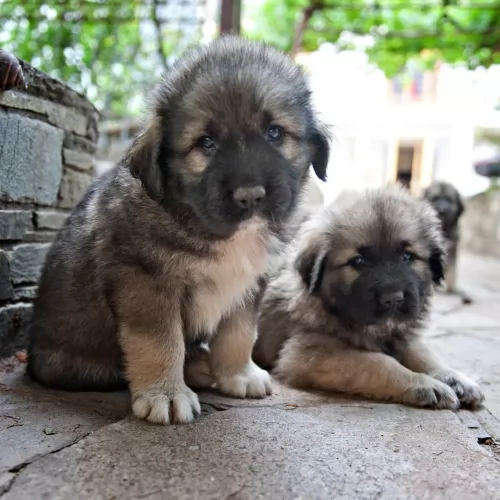 The Sarplaninac dog is a robust dog but he can suffer from health issues such as hip dysplasia, obesity, bloat, ear infections and skin allergies.
The Sarplaninac dog is a robust dog but he can suffer from health issues such as hip dysplasia, obesity, bloat, ear infections and skin allergies.
When your dog gazes up at you with such love in his eyes, don’t be tempted to pop some chocolate into his mouth or let him finish off your ice-cream. Treats like this can damage your pet’s health and give him heat intolerance, breathing difficulties, hypertension, liver disease and diabetes.
 Your GFB, with his shaggy coat, will need a brush a couple of times a week and nothing much more, being looked upon as a fairly low maintenance breed.
Your GFB, with his shaggy coat, will need a brush a couple of times a week and nothing much more, being looked upon as a fairly low maintenance breed.
He will require you checking inside his ears to ensure he is free of infection. You will need to have his nails trimmed if he doesn't wear them down himself and he will need to have his teeth brushed at least 2 or 3 times a week with special dog toothpaste- and toothbrush.
As a medium sized dog, the Griffon Fauve de Bretagne will need a high-quality dog food full of all the right vitamins and minerals to ensure health and a long life.
He is a hunting dog so you want to make sure that protein is listed high on the ingredients list of his food packaging. You can vary his diet by adding in homemade fare such as cooked chicken, rice and vegetables and you can also try to include some raw meat into his diet too. This raw meat plays an important role in preventing skin allergies.
Never leave him without a bowl of fresh, cool water.
Ensure your 4-legged friend has a nice dry, warm spot with clean blankets to sleep on.
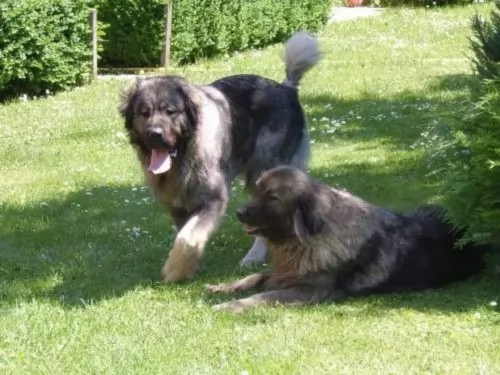 Every dog needs care from puppyhood through to old age.
Every dog needs care from puppyhood through to old age.
Šarplaninacs are looked upon as medium maintenance dogs. The coat is long and thick and requires a firm bristle brush to get their hair brushed.These dogs are moderate shedders so a brush twice a week will do the trick to keep the hair free of loose hair and matting.
Because these dogs have floppy ears, they will need to be checked and cleaned. Floppy eared dogs battle with moisture and wax build-up that increases the likelihood of ear infections.
Check the eyes that they are clear and free of discharge. Eyes with a lot of discharge can be indicative of health problems.
Check for any unusual lumps as cancer often starts with a new lump.
Provide your pet with a nice warm, dry place to sleep.
Keep his vaccines up to date to prevent deadly canine diseases.
Have him or her spayed or neutered if you don’t want puppies. These are regular procedures for a vet and offers health benefits for the dog. Neutering a male improves his character and keeps him from roaming. These dogs are capable of having 3 – 8 puppies.
The Sarplaninac requires decent food if he is to remain healthy. Dog’s stomachs can become upset if they eat all kinds of sweet and spicy human foods.
Commercially manufactured dog food is a good backup food to have because of its convenience. Try to include some home-made food. Simply add into one big pot chicken, brown rice or pasta and spinach, sweet potatoes and carrots. This food can all be chopped up and added in to the dry kibble twice a week. Give this to your pet twice a week and see how his tails wags when he smells it.
Also try to add in some raw meat to his food occasionally.
Ensure there is always a bowl of fresh, cool water within his reach.